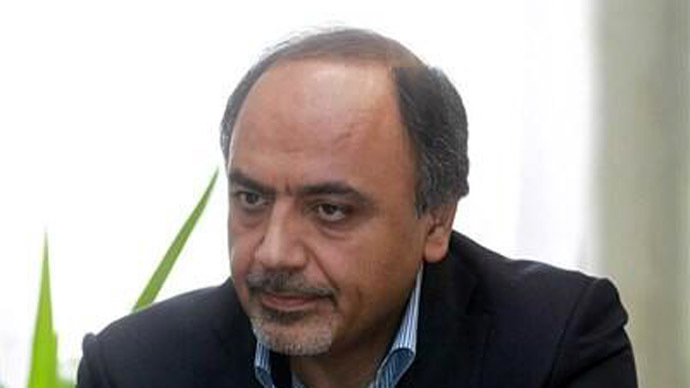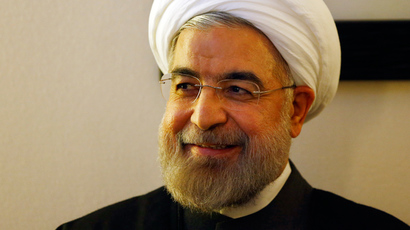White House denies visa to Iran's pick for UN ambassador

The Iranian diplomat picked to be the Islamic republic’s ambassador to the United Nations will not be allowed to enter the United States where the UN is headquartered, Reuters has reported.
White House press secretary Jay Carney confirmed to the newswire on Friday afternoon that Hamid Aboutalebi — Iran’s recent pick as envoy to the UN — will not be granted an American visa, effectively barring him from beginning his ambassadorship.
The latest decision out of Washington comes in the midst of urging from Congress to keep Aboutalebi, a former member of the Muslim Students Following the Imam's Line, from becoming an ambassador to the UN. In 1979, that group occupied the US Embassy in Tehran and held dozens of American citizens hostage for over a year, though Aboutalebi has since insisted that his role within the organization was limited to “translation and negotiation.”
Current members of the US Congress disagree, however, and the US Senate voted overwhelmingly on Monday this week to bar Aboutalebi from entry to America over what that measure’s author, Sen. Ted Cruz (R-Texas), called a “deliberate and unambiguous insult to the United States.”
But since visa bans are issued from the executive branch, the effort on Capitol Hill was considered to be merely symbolic. With pressure mounting, though, Carney has now confirmed days later that the White House has in fact issued restrictions against the would-be ambassador.
"We concur with the Congress and share the intent of the bill," Carney said, according to Reuters.

Previously, the UN said "It has been a usual practice in the Iranian Foreign Ministry to formally appoint ambassadors for all foreign postings, once all formalities pertaining to this process are completed." The organization did not immediately respond to Reuters' request for comment.
Earlier in the week, officials in Iran said they were opposed to Congress’ efforts to keep Aboutalebi from becoming UN ambassador, and the spokesperson for the foreign ministry said that “until we receive a formal response from official channels, we do not consider the matter finished.” Aboutalebi, 56, has previously served as Iran’s ambassador to three countries and the European Union.
"The US Senate action to bar Aboutalebi's entry as Iran's designated ambassador at the UN is sheer interference in the internal affairs of the UN," Mohammad Hassan Asafari — a member of the Iranian Parliament's National Security and Foreign Policy Commission — said earlier in the week.“The Americans are not entitled to the right to oppose the entry of the Islamic Republic of Iran's representative at the UN and the US Senate approval is illegal."
Friday’s decision also comes months after the presidents of the US and Iran had their first formal discussion in 30 years, which American President Barack Obama said after was a“major step forward in a new relationship between the United States and the Islamic Republican of Iran.” According to Obama, Iran’s Pres. Hassan Rouhani “indicated that Iran will never develop nuclear weapons” during the call.













